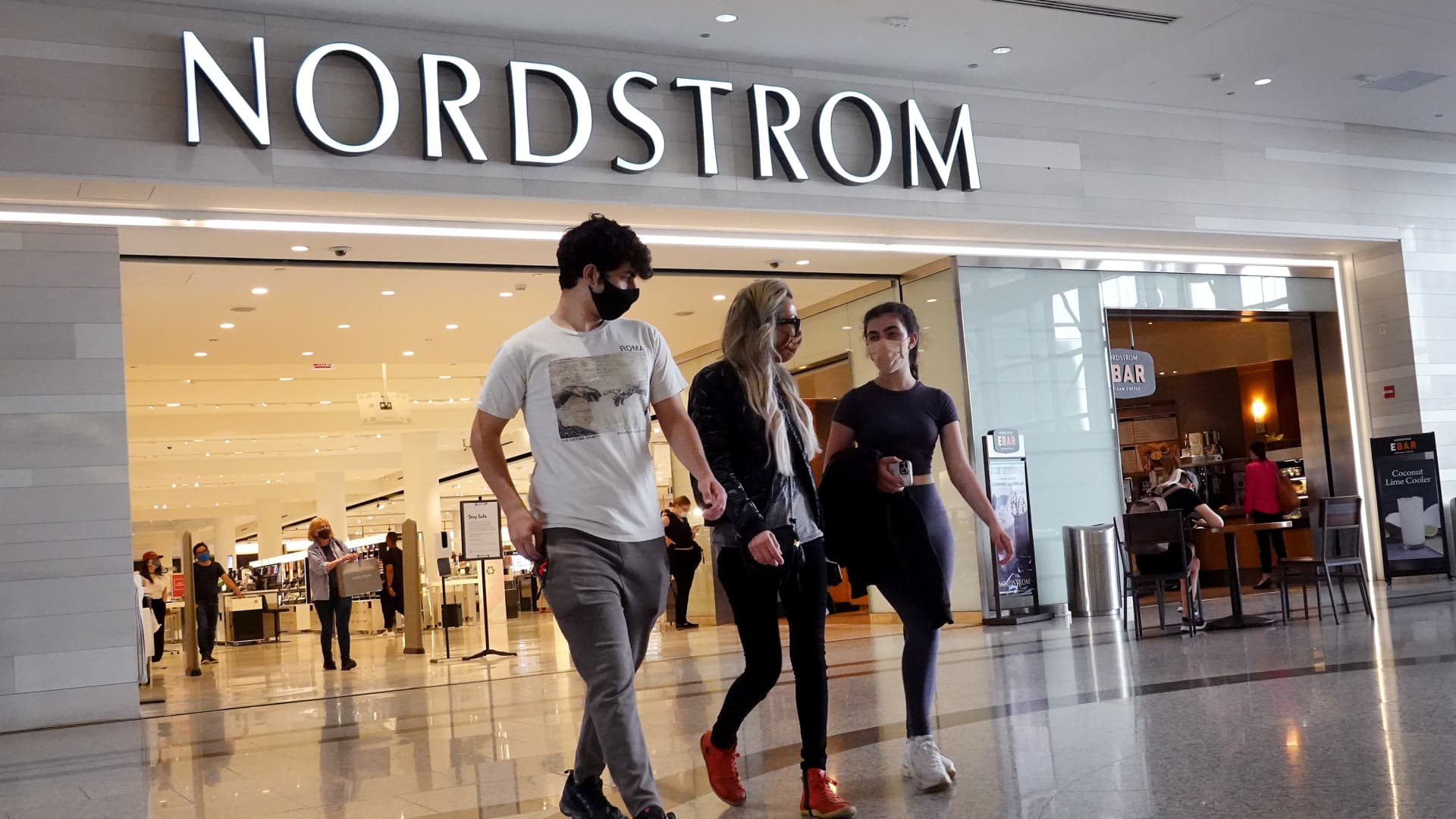Nordstrom cuts full-year forecast, citing slowing customer demand

Nordstrom on Tuesday slashed its financial forecast for the full year as the department store chain faces a glut of inventory and slowing demand.
The retailer’s lowered forecast came even as it reported fiscal second-quarter earnings and sales ahead of analysts’ estimates. Its shares were down 14% in extended trading. Earlier in the day, Macy’s also slashed its full-year outlook, saying it expects that deteriorating consumer spending on discretionary items like apparel will force it to use heavy markdowns to move items off shelves.
“Customer traffic and demand decelerated significantly beginning in late June, predominantly at Nordstrom Rack,” Nordstrom CEO Erik Nordstrom said in a statement. “We are adjusting our plans and taking action to navigate this dynamic in the short term, including aligning inventory and expenses to recent trends.”
Nordstrom now sees annual sales, including credit card revenue, up 5% to 7%, compared with a prior range calling for a 6% to 8% increase. It’s calling for adjusted earnings per share to be in a range of $2.30 to $2.60, down from a prior forecast of $3.20 to $3.50.
Analysts had been looking for adjusted earnings per share of $3.04, with year-over-year revenue growth of 6.7%, according to Refinitiv data.
Here’s how Nordstrom did in its fiscal second quarter compared with what analysts were anticipating, based on Refinitiv estimates:
- Earnings per share: 81 cents adjusted vs. 80 cents expected
- Revenue: $4.1 billion vs. $3.97 billion expected
Nordstrom’s net income in the three-month period ended July 30 grew to $126 million, or 77 cents a share, from $80 million, or 49 cents a share, a year earlier.
Sales rose to $4.10 billion from $3.66 billion; digital sales rose 6.3%, making up 38% of total revenue.
Nordstrom said its men’s apparel division had the strongest growth versus 2021, with footwear, women’s clothing and beauty booking double-digit gains as shoppers searched for outfits for special occasions.
Net sales for the Nordstrom banner grew 14.7%, boosted in part by the timing of the company’s annual anniversary sale. At Nordstrom Rack, the company’s off-price banner, net sales rose 6.3% from the prior year but were down compared with pre-pandemic levels.
Nordstrom Rack rivals retailers such as TJ Maxx and Ross Stores, and it targets more lower-income customers who have been pressured by higher inflation than the company’s full-price banner.
Management said on a conference call Tuesday that it plans to reset the merchandise at Nordstrom Rack to include more of the premium brands that shoppers are looking for.
Companywide inventory levels increased nearly 10% compared with the year-ago period, driven by growth at both banners. Nordstrom said it aims to be “clean” on its current inventory levels by the end of the third quarter.




